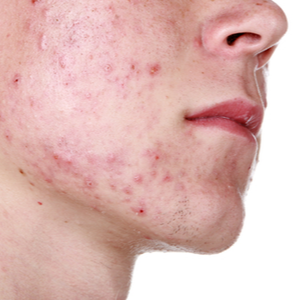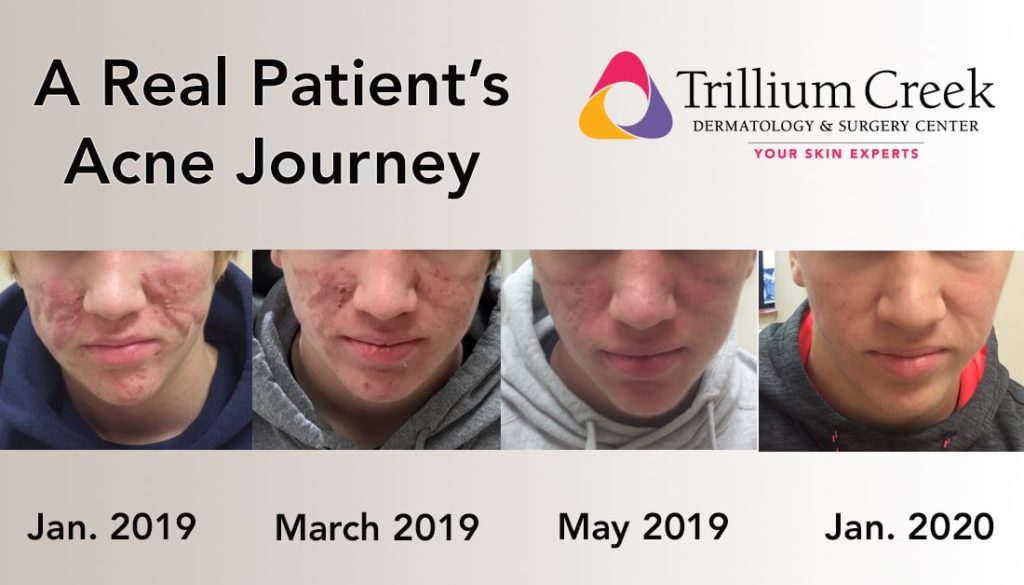Quick Links

Accutane (also referred to as Isotrtinoin, Claravis, Absorica, Amnesteem, or Myorisan). Accutane is a high dose of vitamin A that works on the oil glands. Treatment with Accutane is typically a 5-month course and is indicated for patients with moderate to severe acne, large cystic acne, acne that is scarring. Also, indicated for patients with mild or moderate acne that have tried and failed previous treatments. Accutane can be used by all types of individuals, with the only true contraindication being pregnancy.
Many people voice concerns about placing themselves or their children on Accutane due to potential side effects of the medication. While it does have side effects, using Accutane is actually safer than using antibiotics long term and over 13 million patients worldwide have been treated with Accutane since the medication was approved in 1982. The main reason Accutane requires monthly appointments during treatment and is so closely monitored by the FDA is because it is considered to be pregnancy category X, meaning babies born to mothers currently using Accutane will have severe birth defects. For this reason, all patients require registration with the iPLEDGE system, females require two forms of birth control when on the drug, and monthly pregnancy tests while on the medication. There is no risk to future pregnancies once the medication is discontinued.
So what can you expect during your course of Accutane treatment?
About one out of five patients see a slight flare in the acne during the first month of treatment due to the oil glands closing and pushing things out. Improvement is typically seen by month 2, with a more dramatic skin clearance by month 3. Typically, between months 4-5, breakouts have stopped and new lesions rarely develop. The medication is stopped once there has been a complete clearance of the skin.
While Accutane has side effects, it is considered to be a complete cure for acne in 50% of patients, requiring no further treatment ever after completion of one course of Accutane.
Accutane Side Effects
The most common side effects experienced during the course treatment are dryness: including dry lips, dry nose and nose bleeds, and dry itchy skin – which essentially means the medication is working because oil glands are being dried everywhere. Other less common side effects include irritation of the eye/eyelids, joint or muscle aches, temporary hair thinning, rash, intestinal symptoms, sun sensitivity, and irritability.
The FDA requires monthly visits during the course of Accutane. It is recommended to moisturize frequently while on the medication. Any products placed on the skin should be gentle and non-fragrant to minimize any further irritation. It is recommended to use plain Vaseline for dry or cracked lips, nasal saline or Vaseline for a dry nose, and lotions including HH Science Ultra Lite Moisturizer or HH Science New Balanced Skin Lightweight Oil-free moisturizer. For cleanser, we suggest using gentle cleansers for washing including HH Science Ultra Gentle Cleanser.

Frequently Asked Questions
What is Isotretinoin (Accutane)?
Isotretinoin (Accutane) is an oral medication used to treat acne. It is indicated for treatment for severe acne, nodular-cystic acne, and/or acne that has not sufficiently responded to other treatments.
What is iPledge?
The iPledge program aims to inform patients about the teratogenic effects of isotretinoin (Accutane). All patients must be enrolled in the iPledge program prior to starting treatment. Females must be on two forms of birth control or choose abstinence one month before the start date and stay on the chosen method throughout the duration of treatment.



